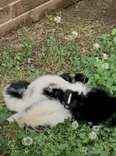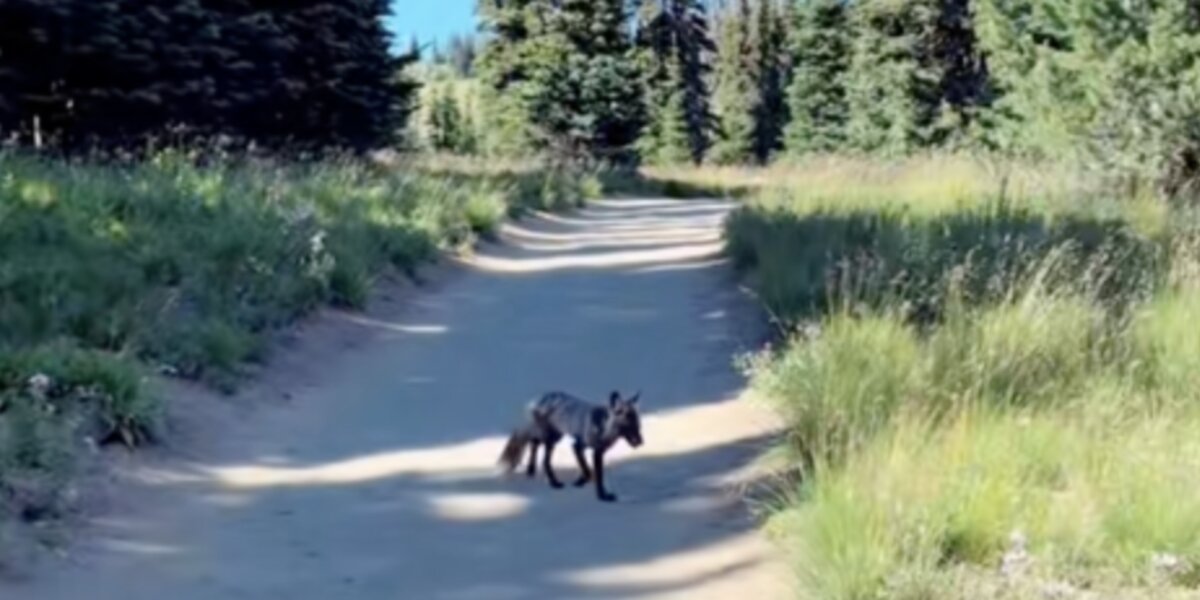A few years ago, Washington-based wildlife photographer Raychel Burke was out on a hike in the Mount Rainier area when a fellow hiker warned her about a coyote on the trail. But when Burke came across the “coyote” the hiker had described, she thought the animal looked more like a fox.
“Suddenly, a small, dark canine walked right toward me on a trail, but was much smaller than I expected,” Burke told The Dodo.
When Burke got home, she looked up the animal she’d seen and was shocked to discover that she’d come across a Cascade red fox — a critically endangered species.
“Being a wildlife photographer with a background in zoology and conservation, I was thrilled to learn later that I crossed paths with one of the rarest subspecies of fox on the planet,” Burke said.
Cascade red foxes are a rare, elusive species, who thrive in high-altitude regions. There are only a few dozen left on Earth, and all of them live in a small area of Washington State.
“They are smart and tough, surviving in the unforgiving landscape of the sub-alpine zone, one of the snowiest places in the States,” Burke said.
Over the past two years, Burke and her family have come across this Cascade red fox several times while out on hikes.
“It feels really special to have this parasocial relationship with an almost extinct species,” Burke said. “She might not remember me each time we meet, but I like to think they do.”
On one particularly unforgettable day, Burke got to observe the fox hunting for her next meal.
And during one of her most recent encounters with the fox, Burke saw that she had babies with her.
“I squealed with delight when I learned that this fox is a mother with kits hidden in the area,” Burke said. “[S]eeing them take steps toward repopulation is always a huge win!”
As much as Burke loves getting to observe this special animal in her natural habitat, she always keeps her distance, which is crucial for keeping Cascade red foxes safe. It’s incredibly dangerous for wild animals, especially endangered ones, to become habituated to humans.
“One time, she sat nearby resting, and I walked away to give her space,” Burke said.
Burke was happy to learn that a nonprofit called Cascades Carnivore Project has been working tirelessly to study and protect these special foxes. They’ve emphasized that the best thing people can do for Cascade red foxes is to leave them be.
“It is imperative to never search for, approach or feed a Cascade red fox,” Burke said. “Report any sightings. Keep the exact sighting location private to prevent excessive trail traffic seeking them out.”
Thanks to conservation efforts and enthusiastic supporters like Burke, Cascade red foxes are being given a chance to thrive. Hopefully, they’ll be roaming around Mount Rainier for many generations to come.
If you’d like to support Cascade red foxes, you can make a donation to Cascades Carnivore Project here.  Woman Does A Double Take When She Sees ‘Huddled Up’ Pile Of BabiesThey were fending for themselves 💔
Woman Does A Double Take When She Sees ‘Huddled Up’ Pile Of BabiesThey were fending for themselves 💔
